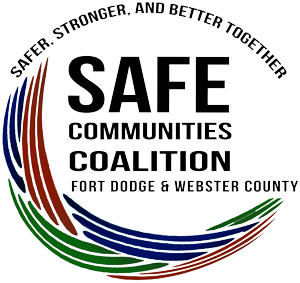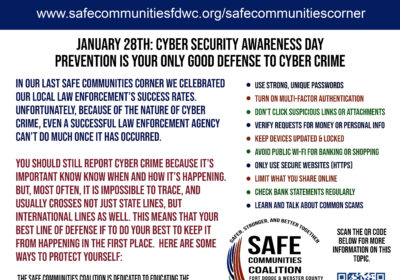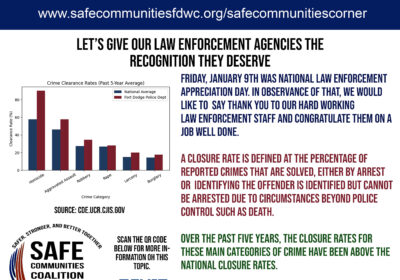Understanding Identity Theft: How Scammers Target Different Age Groups
Identity theft continues to be one of the fastest-growing crimes in the United States, affecting millions of people each year. The local banks, law enforcement, and the Safe Communities Coalition of Fort Dodge and Webster County are raising awareness about how scammers gain access to personal information—and how those tactics can vary depending on your age group.
According to the FTC Consumer Sentinel Network, fraudsters use a range of contact methods to deceive victims, including phone calls, emails, text messages, and even social media. A closer look at the data shows clear differences between younger and older adults in how they are targeted:
-
Younger adults (ages 18–59) are most often contacted through social media (31%), followed by websites or apps (30%) and phone calls (10%).
-
Older adults (ages 60+) are more likely to be targeted through phone calls (24%), websites or apps (21%), and emails (11%).
These statistics highlight an important truth—scammers adapt their tactics based on who they’re targeting. Younger adults, who spend more time online, face higher risks through digital platforms and ads. Meanwhile, older adults tend to be more vulnerable to traditional methods such as phone calls or mailed correspondence.
How to Protect Yourself
To steal your identity, scammers first need access to your personal information. Staying informed and cautious is your best defense. Be skeptical of unsolicited calls, messages, or online requests for personal or financial details. Always verify the legitimacy of a company or agency before sharing sensitive information.
If you’re part of a community group or organization that would like to learn more about how to avoid identity theft, we are offering free education and resources. You can contact us at 515-573-3178 to schedule a presentation or training.
Building a Safer, Stronger Community
The Safe Communities Coalition is dedicated to improving safety awareness and promoting positive engagement between law enforcement and the community. By staying informed and learning how to recognize scams, we can protect ourselves, our loved ones, and our community.
Together, we can stop identity theft before it starts.




